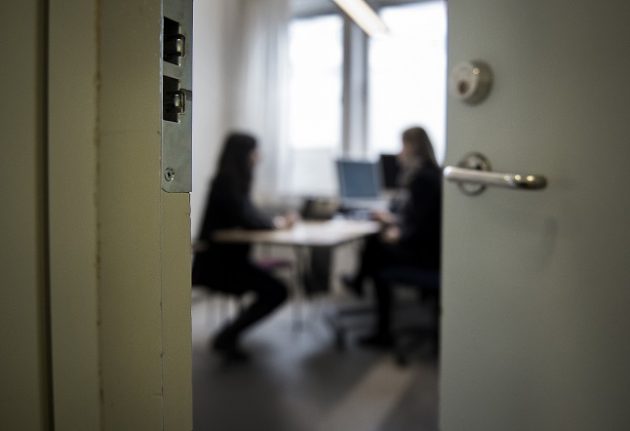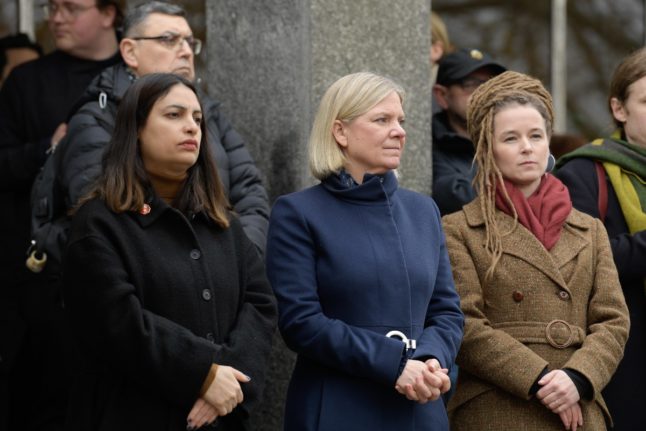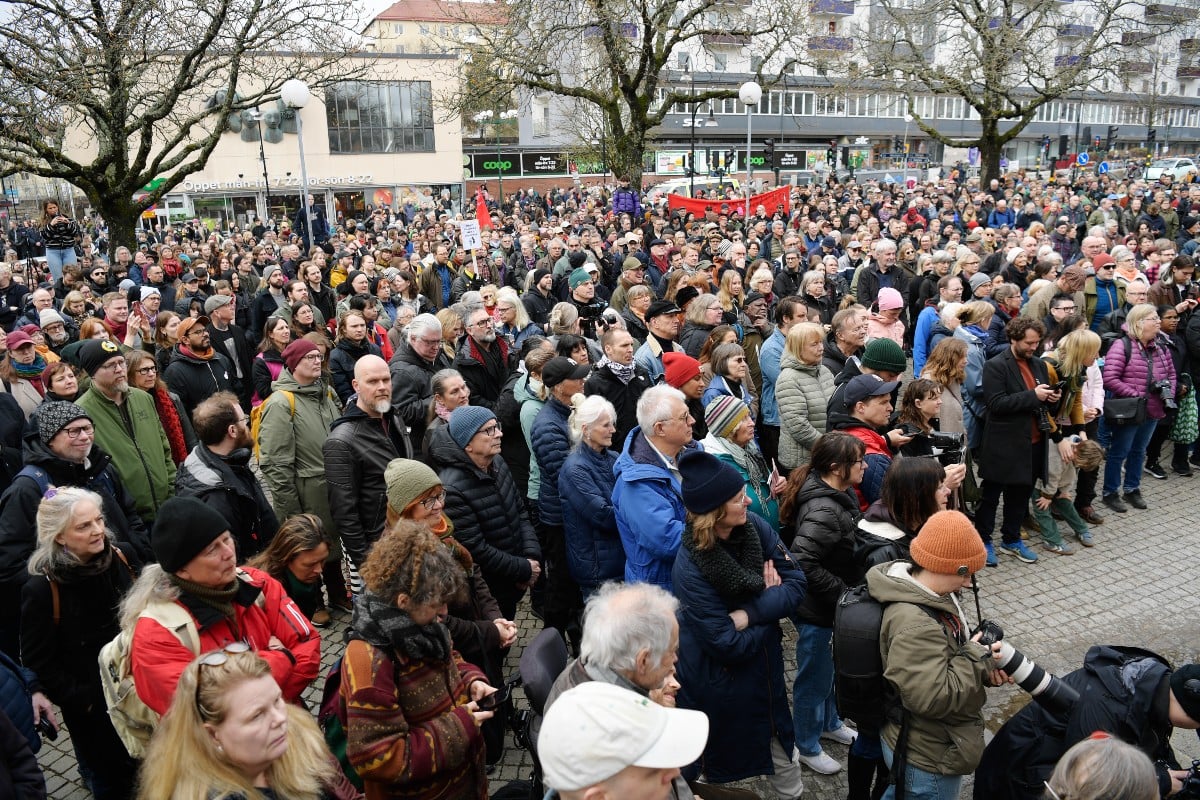The suggested changes to Swedish migration law were outlined on Tuesday in a 600-page report from a Migration Committee which includes representatives from each party as well as independent experts.
Even still, these proposals are not as extensive as first expected. The aim of the committee was to come up with ideas for a “humane, legally certain and effective” migration policy to replace the temporary laws introduced in 2016 in the wake of a mass influx of refugees.
After cross-party talks broke down, the final report was made up of more than 20 proposals rather than a comprehensive policy, each one supported by several parties. The proposed changes fall into five categories, and would affect people who move to Sweden to join a family member, as refugees, or for special protection, as well as those applying for permanent residence.
But there are still several hurdles before any of them become law.
For that to happen, the Social Democrat-Green government would need to put together a bill, send it out for consultation, and it would then need to pass a parliamentary vote. But the Green party, the minority coalition partner, only backs a small number of the proposals, so it's not clear yet how the government will proceed.
Permanent residence requirements
Currently, non-EU citizens can apply for a long-term residence permit after five years living in Sweden with the ability to support yourself, while EU citizens can apply for a permanent residence permit after the same amount of time.
The committee suggests introducing additional requirements. Permanent residence would only be granted to those who “meet the requirements of Swedish language skills and civic knowledge, who can support themselves, and where there is no doubt, with regard to the alien's expected way of life, that a permanent residence permit should be granted”.
This is a big change; there is currently no requirement of language skills or civic knowledge for either permanent residence or even Swedish citizenship.
There would however be exemptions from the first three requirements (language, civic knowledge, maintenance) for pensioners who are eligible for a Swedish national or guarantee pension (meaning they had either worked in Sweden or retired there after living on a low income or no income) as well as for children. There would also be exemptions in other “exceptional” cases.
-
How the pandemic changed immigration to Sweden
- What to do if your Swedish work permit renewal is rejected
Moving to someone in Sweden
The proposals would make it easier for people living in Sweden on temporary residence permits to have family members move to join them.
If the person on a temporary permit (the 'sponsor') has “good prospects” of getting permanent residence, their family members would be eligible for a family residence permit. That includes spouses, cohabiting partners, unmarried children of either the sponsor or the sponsor's partner, and other close family members where a “special relationship of dependency” existed in the home country.
These permits would be valid for the same time as the permit of the family member they are moving to. If they extended their permit, they would be eligible for a temporary permit of up to two years, which could then be extended for up to another two years, as long as their permit was never valid for longer than that of their sponsor.
In certain situations, it would be possible for the relocating family member to apply for a permanent residence permit after at least three years in Sweden.

Photo: Anna Hållams/imagebank.sweden.se
Exemption from family maintenance requirements for Swedish and EEA citizens
This has been one of the most hotly-debated issues as political parties tried to come to agreement on the proposals.
One of the big changes in the 2016 temporary law was the introduction of so-called maintenance requirements for people bringing family members over to Sweden.
Unlike the changes outlined above, this applied to anyone bringing over a family member, including permanent residents and citizens. Anyone bringing a family member or spouse to Sweden must currently prove that their income and size of their home is sufficient to support the family member. Any job offer, savings or independent income of the family member is not taken into account.
The Migration Committee proposes retaining the maintenance requirement as a condition of family permits as a general rule, although it should not apply for applications for permit extensions.
There would be a significant exemption from the requirement however.
The maintenance requirement would no longer apply if the family member already in Sweden is a citizen of Sweden, an EEA country, Switzerland or the UK, and the permit applicant is their spouse or cohabiting partner. In these cases, the couple would still need to prove that their relationship was well-established, for example by showing they have lived together in another country.
Other exemptions would apply in exceptional circumstances as well as for refugees if certain other criteria are met.
-
What they don't tell you about moving to Sweden for love
- How to get Swedish citizenship or stay permanently in Sweden
Temporary residence permits for refugees
One of the issues the committee was asked to decide on was whether people granted protection should be given temporary or permanent residence permits. Previously permanent residence permits were the norm, but since 2016 temporary permits have been the default.
That would remain the case under the new proposals, which include seven points related to the duration of residence permits.
People granted protection as refugees would be given three-year residence permits, and people receiving protection on other grounds would be given permits of 13 months. If these permits were extended, the committee proposes that these new permits also be temporary rather than permanent, with a validity of two years. Under certain criteria, it would be possible to apply for a permanent residence permit.
It would also be possible for people with these temporary permits to apply for a work permit.
Humanitarian grounds
Under current laws, people can be granted residence in Sweden for protection if they are classed as refugees or “others in need of protection”.
A new category would be introduced to cover people who are considered to need to stay in Sweden on humanitarian grounds. This would cover people who fall through the gaps under the existing rules, and the category “others in need of protection” would be removed.
The proposals state that this would apply for people who aren't eligible for other permits but are subject to “exceptionally distressing circumstances” based on an overall assessment of their situation.
This might cover their health, the ways they have adapted to Swedish life, and the situation in their country of origin. And the criteria would be applied especially generously for children, so that they might be granted residence permits even if the circumstances wouldn't be serious enough to grant a permit to an adult in that situation.
These permits would be temporary and valid for 13 months, and could be extended for two years at a time.
What do you think about the proposals? We want to know what our readers think so that we can fight your corner in Sweden. Comment below or email [email protected] to share your thoughts with our editorial team.




 Please whitelist us to continue reading.
Please whitelist us to continue reading.
Do we have any updates on Riksdag for this? like how will the language be evaluated: by effort or by result driven? and what level shall the applicant to be expect to reach?